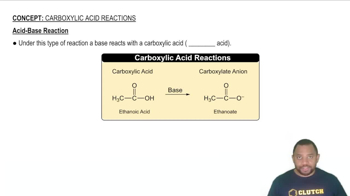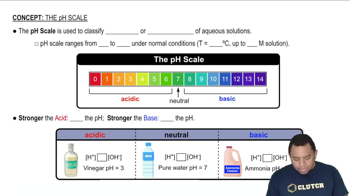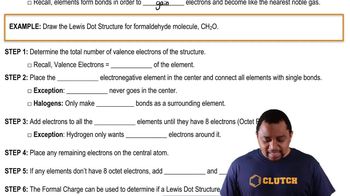Textbook Question
Phenol (C6H5OH, Ka = 1.3 x 10^-10) is a weak acid used in mouthwashes, and pyridine (C5H5N, Kb = 1.8 x 10^-9) is a weak base used as a solvent. Calculate the value of Kn for the neutralization of phenol by pyridine. Does the neutralization reaction proceed very far toward completion?





